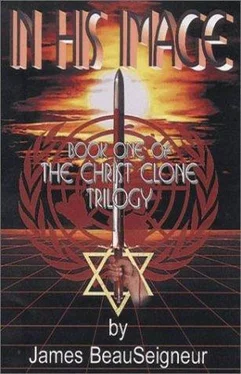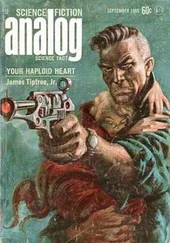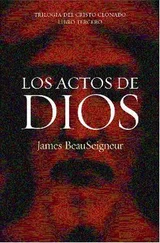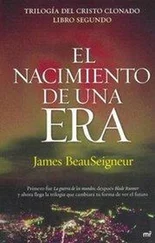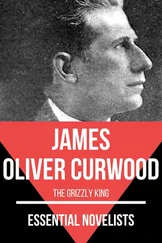It was just after dawn. Robert Milner acted as navigator while Decker Hawthorne drove the rented jeep through the mountain pass on their way to meet Christopher. In the jeep Decker had brought food, bottled water, and a first aid kit. His thoughts alternated between worry about the condition in which they would find Christopher and anticipation of what Robert Milner had told him in the lobby of the Ramada Renaissance forty days earlier. The barren countryside brought back memories of Decker's own wilderness experience eighteen years earlier, when he and Tom Donafin had made their way through Lebanon toward Israel before being rescued by Jon Hansen. He recalled the powerful shift of his emotions in that moment as he lay on the ground, tangled in barbed wire, with three rifles pointed at his head, expecting to be shot; and then suddenly recognizing the U.N. emblems on the soldiers' helmets, and realizing that he and Tom were safe.
In the past, when Decker recalled that moment, he thought of it as just another case of being in the right place at the right time. Now he could not help but believe it was much more. Had it not happened, he would not have met Ton Hansen and he surely would never have become his press secretary. And had Decker not worked for Hansen, who later became Secretary-General, then Christopher would not have had the opportunities he did to work in the U.N. and later to head a major U.N. agency, and then to become a U.N. ambassador serving on the Security Council. Surely this was more than chance.
It occurred to him that this chain of events had not just started on that road in Lebanon. There was the destruction of the Wailing Wall, and then he and Tom were taken hostage; and before that, there were the events which had allowed him to go to Turin, Italy, in the first place. If he had not gone to Turin, he certainly never would have been called by Professor Harry Goodman on that cold November night back in 1988, to come and see what Goodman had discovered on the Shroud.
As he continued to think through the chain of circumstances that had brought him to this point, he tried to find the single weakest link in the chain, the seemingly least important event which, had it not occurred, would have averted any of the later events.
"Some things we must assign to fate," Robert Milner said, breaking the silence. It was as though he had been listening to Decker's thoughts.
"Uh… yeah, I guess so," Decker answered.
The days leading up to his return to Israel to find Christopher had been the most anxious of Decker's life. At times he could barely concentrate on his work as he counted the days until Christopher's return and anticipated what would follow. Milner had talked about a time so dark and bleak that the destruction of the Russian Federation and the Disaster would seem mild by comparison. Somehow the horror which might otherwise have consumed Decker at such a thought was mitigated by the hope which Milner also foresaw. Certainly, to this point, nothing cataclysmic had occurred – though the unrest in India and Pakistan might well foreshadow such events. Decker realized he would have to accept the bad along with the good. He just didn't want to dwell on it, especially if, as Milner indicated, such events were inevitable.
Ahead on the trail, a shapeless form began to take on definition. Had Decker noticed it before, he would have thought it was a bush or a tree stump or perhaps an animal, but until this moment it had blended so well into the background that it seemed an inseparable part of its surroundings. "There he is," said Milner.
Decker pressed a little harder on the gas pedal. As they got closer, he began to wonder again in what condition they would find Christopher. The last time they were together, Christopher had told Decker that he was beginning to wonder whether in the final analysis, his life had been a mistake. Now, forty days later, he was – according to Milner – the man who would lead mankind into 'the final and most glorious step in its evolution.'
In another moment they could see him clearly. His coat and clothes were dirty and tattered. He looked thin but strong. Over the forty days his hair had grown over his ears and he now had a full beard. When Decker saw his face, he was startled for a moment by the astounding resemblance to the face on the Shroud. One thing, however, was very obviously different. The face on the Shroud was peaceful and accepting in death: on Christopher's face was the look of a man driven to achieve his mission.
Milner was the first one out of the jeep. He ran to Christopher and embraced him. Patting Christopher on the back caused a small cloud of dust to rise from his clothes. Christopher then went to Decker, who reached out his hand but Christopher refused it, then instead hugged him as well. He smelled awful, but Decker held him for a long time anyway.
"Are you all right?" Decker asked. "I've been worried about you."
"Yes, yes. I'm fine." Then turning slightly to address both Decker and Milner, he continued. "It's all clear now. It was all part of the plan."
"What plan?" asked Decker.
"I've spoken with my father. He wants me to finish the task."
"You mean… God? You talked with God?!"
Christopher nodded. "Yes," he said quietly. "He wants me to complete the mission I began 2000 years ago. And I need your help; both of you."
Decker felt as though he was standing on the crest of a tidal wave. Suddenly his life had more meaning than he ever imagined possible. He believed what Milner had told him about Christopher's destiny; if he hadn't he never would have left Christopher alone in the desert. But then it had all been cerebral. Now he was hearing it from Christopher's own lips. This was a turning point, not only in the lives of these three men, but of time itself. Just as the coming of Christ had divided time between B.C. and A.D., this too, would be a line of demarcation from which all else would be measured. This undoubtedly was the birth of a New Age. Decker wished that Elizabeth were alive to share it with him.
"What can we do?" Decker managed.
"We must return to New York immediately," Christopher answered. "Millions of lives are at stake."
Before leaving New York, Decker had arranged for the loan of a private jet from David Bragford, telling him that it was for Milner. As planned, the jet and crew were waiting at Ben Gurion airport when Decker, Christopher and Milner arrived. Decker had brought clothes and a shaving kit from home for Christopher, but though he eagerly took advantage of the shower on Bragford's plane and welcomed the clean clothes, Christopher decided to forego the razor and keep the beard.
As Christopher ate his first meal in forty days, Decker briefed him on events at the U.N. Afterward Christopher began to pour over the reams of documents Decker had brought for him to review.
Three hours into the flight, one of the crew members came into the cabin, obviously very concerned about something. "What is it?" Decker asked.
"Sir," he said, "the captain has just picked up a report on the radio. Apparently all hell has broken loose in India."
"We're too late," Christopher whispered to himself as he let his head fall into his open hands.
The crewman continued, "The Pakistani Guard have detonated two nuclear bombs in New Delhi. Millions are dead."
For a long moment they sat in stunned silence, then Decker turned to Milner. "This is what you were talking about in Jerusalem, isn't it?"
"Only the beginning," he said as he reached over and hit the remote control to turn on the satellite television.
Immediately the screen showed the mushroom cloud of the first atomic bomb set off in New Delhi. The billowing cloud of debris seemed to roll back the sky like an immense scroll of ancient tattered parchment. Two days after the Pakistani Guard first made threats of hidden nuclear weapons, the television network had set up remote cameras to run twenty-four hours a day outside the threatened cities just in case the Guard carried out its threats. Even from ten miles away, the camera began to shake violently as the earth trembled from the blast's awesome shock wave. Several hundred yards in front of the camera a small two-story building vibrated with the quake and then collapsed. An instant later a bright flash on the screen marked the second explosion.
Читать дальше
